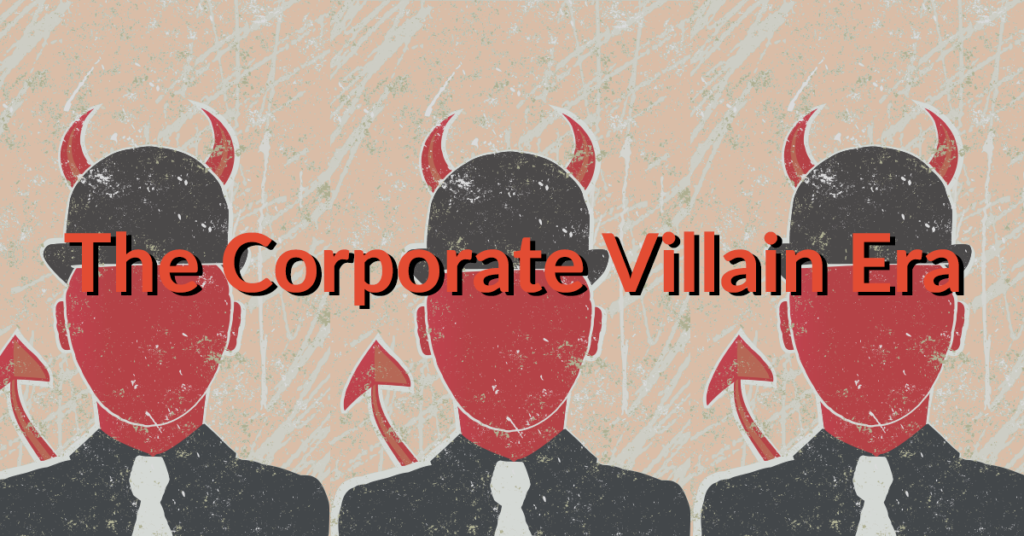The Corporate Villain Era

In this edition of Streaming Consciousness, I was inspired by a trending phrase I have continually seen on social media: the corporate villain era. What is the corporate villain era, you may ask? The definition tends to vary and be dramatized depending on who is referencing it. Some are trying to do the least amount possible while on company time and company dime; others are far more focused on reclaiming their 5-9 or after hours. Know Your Meme describes it as “a slang term used to describe a period of time when someone acts like a ‘corporate villain’ to maintain a healthy work-life balance, meaning shrinking work-related responsibilities and being a detriment to their workplace in general for the sake of their own mental health or wellbeing.” Although some conversations about “entering the corporate villain era” are ridiculous, it does remind us that it is just a job.

In execution, you should not become a villain or be a disservice to your employer, but my perception of this idea is that you can still perform to the best of your abilities without letting work consume all of your time; there has to be a happy median between overworking yourself and underworking at the expense of your company. It is all about setting boundaries and choice, exemplified by reversing the once-held ideal that an email cannot wait. Yes, send that email at 10:30 pm if you so choose to, but don’t expect a response until regular business hours.

I was told from the get-go to pace myself because those around me were worried I would burn out. I have a hard time saying no, love staying busy and give projects 110%. This sounds great until you have three projects all getting that kind of attention and are short about 230%. The “corporate villain era” reminds us that we are human. You have to get your work done and be available when needed, but if you want to get things done early in the morning or late at night outside of business hours, you can do that. We have other commitments that sometimes fall during the workday, and you should be able to do both. Well, not at the same time, but have the flexibility and not feel guilty for it.
As great as I think the movement of the corporate villain era is, the brand professional in me is hung up on the phrasing. Why are we still guilt-tripping people about setting healthy boundaries and not overextending ourselves for a job? Are people villains if they are not working 60 hours a week? Do we have to think in extremes to see change?
As it has been dubbed, the corporate villain era fits into this larger trend we are seeing in a post-Covid world. When companies switched to remote work, people found it harder to distinguish between the workday and free time. There was less to do in our personal lives where our health and safety were not threatened. I spent more time on work to distract myself from the reality of the pandemic. Now that more people are returning to the office and finding a new normal, we have to address that the way we worked through the pandemic is not sustainable. The corporate villain era is not the only employment trend occurring, and there is a level of interconnectivity between all of them; the great resignation, the employee’s job market, economic chaos, inflation and a rising cost of living without equally as high wages are all contributing to a decreasing amount of company loyalty. If we have learned anything after the last few years, it is that time is valuable and that we have to take care of ourselves. So, take your PTO, work where you want to, wear what you are comfortable in and do your job. I believe that if workers are happy and feel like they have a level of autonomy, they will do better work because of it. So, this is your sign to enter your version of the corporate villain era as it fits you and your role.
More About The Author
Lia Esposito is a senior at the University of North Carolina at Chapel Hill pursuing a degree in Media and Journalism concentrating in Advertising and Public Relations with an English Minor. She is currently a social media strategist in the fintech industry.
https://t.me/s/Top_BestCasino/155